Treating Depression Naturally: Supplements, Herbs and Foods for Feeling Better
Dealing with depression is a touchy subject.
When I first began to admit to people in my life that I was struggling with depression, I got a lot of different recommendations. Most were shocked that I hadn’t been to see a doctor, some supported my desire to try to deal with it naturally but expressed concern for me, and a few even confronted me and told that I was possibly being too proud in my “healthy ways” for not being willing to use prescription medication.
There are a lot of different opinions, and I will be the first to admit that I don’t really know that much. I’m not a doctor or practitioner of any kind and I wouldn’t dare to tell you what you should or shouldn’t take, especially for those dealing with depression of a serious or prolonged nature. I also know that what works for one person doesn’t work for everyone, and someone like a naturopathic doctor or certified holistic nutritionist will be better able to pinpoint which remedies may be the right ones for you, with your specific situation and symptoms.
What I do want to share with you today are some of the things that have worked for me personally, and that have popped up repeatedly in my research on healing and treating depression naturally.
Ideas for Treating Depression Without Medication
Herbs
St. John’s Wort :: One of the most commonly recommended herbs for depression, it has a reputation of reducing anxiety and calming moods. One quote read, “It is to the nervous system what Arnica is to the muscular” (Millspaugh, American Medicinal Plants, 1892). It is a mild sedative and reduces pain, anxiety and tension, as well as inflammation. For me, this alone wasn’t enough, but taking it daily does help to take the edge off. You can use it in tablet form, as a tincture (a concentrated liquid made with alcohol or glycerin) or as a tea (see below).
Ginkgo Biloba :: This herb has an amazing ability to improve circulation, including blood flow to the brain. I began taking it in the summer, when I suddenly felt that my ability to focus and get quality work done had dropped and I was literally functioning at 1/3 my usual productivity. My brain was just foggy all the time and I felt very unmotivated. Literally within a day or two of taking Ginkgo, I began to feel more clear-headed than I had in a long time. I have read in one place that Ginkgo shouldn’t be used for more than 6-8 weeks at a time, but other places have never mentioned a need to take breaks, so you’ll have to do your own research on that one. I took it in capsules (powdered herbs inside), but you can also take it in tincture or in a tea (again, see below).
Stress Zapper/Buster Teas :: I love how the Bulk Herb Store has put together these wonderful herb mixes, so that those newer to herbs don’t have to play guessing games. For anyone struggling with depression, you could not go wrong with a couple daily mugs of a herbal tea like Stress Zapper or Stress Buster. Both contain St. John’s Wort, Ginkgo, Siberian Gingseng (helps with fatigue, mental alertness and depressed immune systems) and Peppermint, and then they each include a few other herbs that differ from one another.
For Sleep– Calming Herbal Teas :: Many with depression find it difficult to either go to sleep, stay asleep, or get a solid, restful sleep. Lack of sleep only exacerbates the issue, so finding ways to improve quality and length of sleep is vital! One of the ways (and I list more below) that I have improved my own ability to sleep is by drinking soothing, calming herbal teas after dinner. I have one from my naturopath that includes lavender, chamomile and a few other herbs. I also like the sound of this Sleep Tight Tea, which includes lemon balm and catnip (which I have very useful for relaxation and treating anxiety).
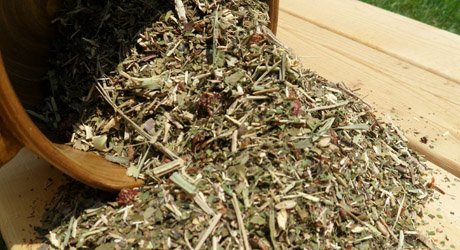
Image by Laura Newman Photography
Supplements
Cod Liver Oil :: Omega-3 fatty acids are one of the most common suspects for physical causes of depression. In our society, there is a chronic issues with Omega-3 deficiency. Do you have cracked lips and dry skin? Aching joints? Have you recently been pregnant or breastfeeding (or still are)? Chances are you need more Omega-3. Best sources include: cod liver oil (especially traditionally fermented oils like the ones from Green Pastures), wild fish (esp. fatty fish like salmon), other types of fish oil, free-range eggs (ones that are actually outside, eating insects), seeds like flax as well as walnuts, and grass-fed beef.
5htp :: Without a doubt, this has been the supplement that I have found most helpful. 5-Hydroxytryptophan (5-HTP) is an amino acid that is the intermediate step between tryptophan (found in turkey, milk, etc.) and serotonin (the feel-good brain chemical). Many people are beginning to use this as an alternative to other depression drugs. It is an extract from the seed of an African plant, and it helps to boost serotonin levels in the brain, regulate mood, improve sleep and calm anxiety. I have not been able to find a whole food source of it (as in, a supplement composed of whole foods, rather than a single nutrient that has been isolated in a lab).
I chose to use it anyway, in a full dose at first, and now I have cut down my dosage to one pill a day. There are pros and cons to using a supplement like this, and it would be wise to consult with a natural practitioner before doing so. Definitely do your research and know that it doesn’t work for everyone, and some do experience side effects. Personally, I cannot take it before going to bed (even though many people find it helps them to sleep, it keeps me up at night), so I take it early in the day instead. Here’s some information from a biased source, and a bit more (scroll down) from a less-biased source.
B Vitamins :: There is much that can be said about boosting B vitamins for mood difficulties, but I will leave that to one of the book resources below (Rebuild from Depression). The best sources of the B vitamin complex (B1, B2, B6, B12, etc.) are whole foods like dark leafy greens (fresh and raw is great, or lightly steamed), organs like liver and kidney (from grass-fed sources), and traditionally prepared whole grains (soaked, sprouted, sourdough).
GABA and Melatonin :: Though it’s not my preference to take so many non-whole food sourced supplements, I have opted to at this point for the sake of getting my body back to a place where I can make even better choices. Sleep is essential, and I simply wasn’t sleeping well. I would lie awake with my heart pounding and mind racing, even when I was completely exhausted, and often wake several times during the night as well. I’ve used 500 mg of GABA (γ-Aminobutyric acid) on the advice of Tired of Being Tired (see books below), as an amino acid that calms the neurotransmitters in the brain and really helps with anxiety.
Taken together with a 3 mg tablet of melatonin taken 30 minutes before I go to bed (and I wouldn’t advise any higher of a dose, unless you want to experience possible night disturbances and side effects- you could even start with 1 mg to try it), I am able to fall asleep relatively easily most nights and I am slowly “paying off my sleep debt”.
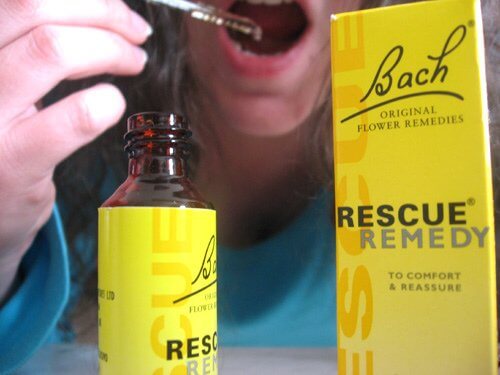
Image by The Italian Voice
For Anxiety and Stress
Two quick things that I have used for those days and moments when I just really feel like I’m losing it:
Bach’s Rescue Remedy :: I personally like the little spray bottle of this concentrated flower essence, meant to calm the body and relieve anxiety, in a similar way that a herbal tincture might. My husband really likes the pastilles (like a small chewable lozenge) to keep in his car. I just use a couple sprays on my tongue when I’m feeling on the edge and it helps to calm me down and regain control so that I can make better decisions in stressful moments.
Calming Teas :: I keep herbs like chamomile and catnip around for making teas that I find calming and soothing, to drink on days when I need a little extra support. Peppermint is also good, as is lavender. There are all sorts of calming, soothing and relaxing teas out on the market and most of them are useful. Sometimes I wonder if the best thing that they do for us is force us to slow down, stop what we’re doing, and make (and sip on) a cup of tea. Either way, it works for me!
Other Useful Things to Keep in Mind
Focus on Getting Quality Sleep :: Stacey wrote a wonderful post on this the other day, so I’ll just let her speak to this subject!
Spend Time Outdoors :: For the fresh air, the sunshine (and subsequent boost of vitamin D) and just the refreshment that comes from being outdoors, it’s worth it to make a goal of even 5-15 minutes everyday, or perhaps a longer walk every couple of days.
Exercise :: Even very moderate exercises, like doing stretches every day, or taking short or leisurely walks, helps to increase circulation, feel-good brain chemicals, improves quality of nighttime sleep and more.
Ditch the Caffeine and Sugar :: I struggled with using both as coping mechanisms, but they really only wound me up tighter and made me crash harder. My husband specifically mentioned to me that when I’m already stressed and I have a coffee to “help me cope”, it only makes me worse. Read these previous posts for tips on ditching sugar and breaking the caffeine habit.

Image by JarleR
Book Recommendations
Rebuild from Depression by Amanda Rose, PhD.
This is the best book that I know of for discussing in detail the common nutritional deficiencies that contribute greatly to depression. She gives you the basic science behind it all, and very practical, easy-to-implement steps for improving your diet and getting more of those nutrients. It is especially applicable for those in child-bearing seasons of life (or who have recently had children or weaned a child), especially those who suffered from post-partum depression. I can’t recommend this book highly enough, as one of the rare resources out there promoting solid nourishing, traditional nutrition! She also has an excellent blog and website that deals with many issues surrounding depression and nutrition.
Tired of Being Tired by Jesse Lynn Hanley, M.D.
Although more specifically focused on adrenal fatigue and burnout, there are many suggestions in here that also correlate to dealing with depression. For many, adrenal depletion and depression go hand in hand, and if you think that you are dealing with adrenal issues, this is a very worthwhile book.
Spiritual vs. Physical Depression
Tomorrow, Sharon (our wonderful, wise and experienced “Titus 2” regular writer) will continue on with the topic of depression, addressing it from the spiritual side. Although I haven’t had enough experience or study to be able to make a definitive statement, I will tell you my basic opinion on depression and whether it is primarily spiritual or physical. I think that it is both. Which came first is sometimes hard to say.
I strongly believe that our spiritual health can have direct effects on our physical health (“A joyful heart is good medicine, but a crushed spirit dries up the bones.” Proverbs 17:22), and vice versa. When our physical health suffers, in our pain or despair or exhaustion or anger, we can often allow our relationship with the Lord to suffer or even stagnate, rather than running to Him for grace, mercy and strength to endure the physical trials that we are facing. Our spirits, physical bodies and brains interact in very mysterious ways, that I don’t think we will ever fully understand on this earth.
In my experience, my depression was very related to my circumstances (exhaustion, too much work, poor sleep, frustration, etc.), and began to influence me spiritually. At the same time, I also experienced very real, physical effects of the depression. By using natural methods to begin to treat the physical symptoms and struggles, I am slowly moving towards a place where I am healthy enough to begin to address the deeper, spiritual issues at root in my life.
It wasn’t an either/or situation. It was a first this, then that. I can’t say that it is the same for everyone, but I have heard similar anecdotes from many people I know who have also suffered with depression.
What have you found to be effective in treating depression naturally?
Disclaimer: I am not a certified medical professional of any kind and am not qualified to give you medical advice. My goal is to help to educate and inspire you to take responsibility for your own family’s health and make informed choices of your own, not to consult you on medical treatment. Additionally, this post does include some affiliate links. I only recommend products that our family would purchase and use ourselves.
Top image by fotologic
Other Related Posts You May Enjoy
- What is “Real” Health?
- The Benefits of Sleep: 8 Benefits for Getting Quality Sleep
- What it Means to Be Well
- My Journey to Burnout: Proof That I Really Can’t Do It All
- Developing the Exercise Habit
- Staying Motivated to Excercise
- Finding Fulfillment in Being A Mother Only
- Naturally Neutralizing Stress: Herbs that Calm
- The Terrible Thirst of Depression
- Panel Discussion on Burnout and Fatigue: 3 Women Get Real About Their Struggles part one and part two
- What is Adrenal Fatigue and Do I Have It?
- Adrenal Fatigue: Help and Resources for Healing

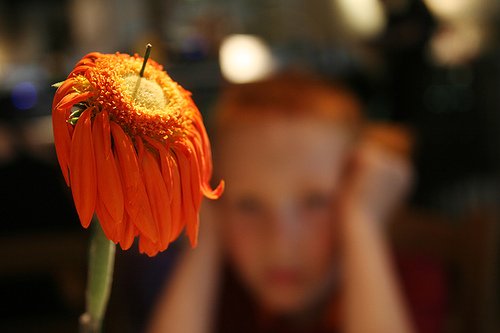

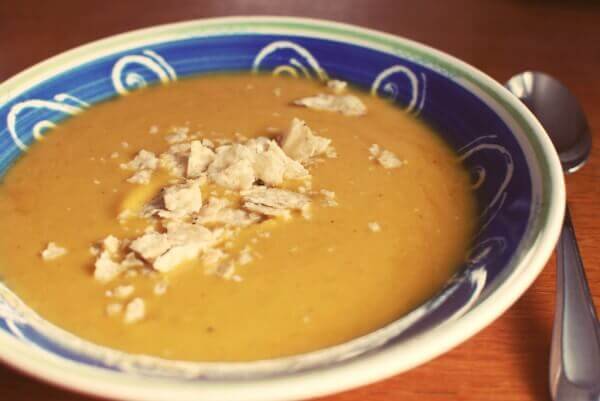
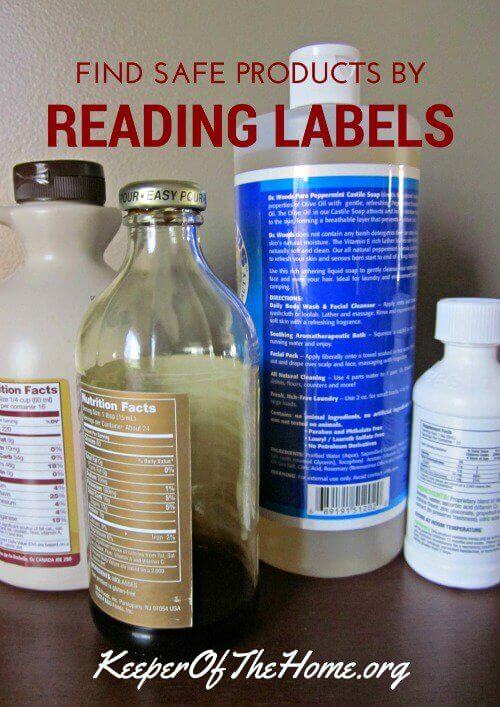

Thank you SO MUCH for being honest about your struggles and for sharing with us your treatment regimen. There’s such a stigma associated with depression in the Christian community. I’ll be praying for you.
I’m so grateful that you put out this list. I ca feel myself slipping into a more and more anxiety/stress/depressed filled mental attitude over the last couple weeks (similar to every winter for me), and I’m hoping some of these herbs will help. I’ve never heard of the Siberian Ginseng and 5-HTP, so lets see if the combo helps with that and the Vitamin D I already am taking (which helps quite a bit too).
Thank you
A fabulous breathing technique I learned from my naturopath was the 5-7-8 breath. It help me while I’m having stress driving and also when I’m lying awake at night. Breathe in through your nose for the count of 5. Hold the breath in for the count of 7 and then exhale by blowing out through pursed lips (like candles on a cake) for the count of 8. This has beena lifesaver and au natural like I prefer!
Hi Stephanie, do you know about the safety of any of these items during pregnancy? I’m also interested in tryptophan (5HTP doesn’t work for me) and valerian. I have a terrible time sleeping and don’t know how I’ll ever sleep without them. I barely sleep with them as it is. I also currently take GABA, melatonin, l-theanine, and magnesium. I’m also looking into a light box to help reset my delayed sleep syndrome. Light boxes also help with depression.
Thanks!
@Kathy, I just answered someone above on the same question. Here’s what I said:
That is something I am not sure of, as I’m not pregnant right now so I haven’t had to do the research. Start googling the ones you’re interested and maybe with the words “safe pregnant” or “safe pregnancy”. Try reading about them on several different sites to see if they say anything in regards to pregnancy. And definitely ask your midwife or naturopath to help you out!
Kathy, I was told by my midwife who loves using herbs that valerian is not safe for pregnancy or for young children.
Stephanie- really good article… well written and good suggestions…although my daughter is a psychologist … I applaud you for treating the depression by yourself and naturally…. so many run to drs first and although my daughter doesn’t prescribe drugs in most cases… most psychiatrists do so first…. which I , personally, do not feel is the answer.
Depressions is a ‘state of mind’.. not much to add to your excellent suggestions except, of course, the ‘Living Clay’ , which is all about full body detoxification and balance to a healthy body.. which is always important , as feeling better is also a key to improving and ridding one of any condition… ALSO: surrounding yourself with good friends and support groups with positive thinking….. hoping many will read your article and benefit from it…. paul mackey
I have struggled off and on with depression for several years. I went to doctor a couple of years ago now, and he prescribed me some medication. I would love to get off the medication, but I’m nervous as I’ve gone without for a few days and I can feel myself slipping or have weird feelings. Any suggestions?
@Sherry, I’ve never done the medication myself, so I don’t know much about it, except that it is something best weaned off of, rather than going off it cold turkey. I would talk with your doctor about their ideas on how to get off of it safely, or with a naturopath who is knowledgeable in this area.
One bit of info I would add, based on experience, is that treating anxiety & depression naturally can sometimes be a slower process than treating with prescription drugs. BUT for the most part, side effects are avoided. I tried the prescription drugs and the side effects only deepened the depression for me, so I decided to see a naturopathic doctor instead. Being treated with homeopathics and herbal supplements brought no side effects, but did take a few months to see a real obvious improvement. For me personally I preferred the waiting to the extra issues brought on by the prescription stuff.
Another good book from a Christian perspective with both natural and conventional treatment suggestions and opinions (its well rounded) as well as being suppportive and info for other people who you love (like your husband) to read is called “Unveiling Depression in Women” the author’s last name is Hart.
This was a great article. I struggled with depression from the ages of 12 to 23 when I finally attempted suicide. I was not a Christian then, which may have much to do with the despair for which I suffered. My life as a young girl and young adult was nothing but chaos and destruction, all of my own doing. I had been on one anti-depressant after another since the age of 13 until my attempt. I am now not allowed to even look at an anti-depressant as that is what caused much of my suicidal thoughts, and eventually led to a psychotic break. So the warnings posted on anti-depressants are real and shouldn’t be taken lightly.
After my suicide attempt the Lord rescued my soul and I ended up marrying a psych tech (go figure), and while I still have moments of feeling a bit low, I have learned to handle it naturally by making sure I am getting all the vitamins and minerals that my body requires. Vitamin B3 (Niacin) is a great vitamin to make sure you’re getting enough of. This can be through supplements or eating foods rich in Vitamin B3. I struggled with post partum depression after having my first child for about 6 months, the really bad type. My husband and I were determined to find ways for me to cope and we found that changing my diet did wonders that no anti-depressant could do. The spiritual aspect of it was to first, acknowledge how I was feeling, and then not only tell my husband and communicate openly with him, but remember that I need to take every thought captive unto the obedience of Christ. This required that I recognize when my “feelings” are irrational. For example, if there are no outside or environmental factors causing my depression (loss of a loved one, financial distress, etc) then I needed to recognize I have no rational reason for being depressed. This would then lead me to look back on what I’ve been eating or doing in the past 24 hours or so to see if something I am doing or not doing is triggering the depression. This could be not spending time in God’s word, to eating junk food. If after remedying those things I still felt the way I did, I needed to pay close attention to things like hormonal changes, like is it getting close to my menstrual cycle or could I be ovulating…stuff like that.
Communication for me is key. After my suicide attempt I had to learn to be open and honest with how I was feeling with my husband. I was committed to the state after my suicide attempt and just that experience alone initially caused feelings of shame and fear that if I even mentioned I was feeling low that someone would have me committed again. I also was afraid people would be walking around on egg shells when they were around me, which I didn’t want either. I feel so blessed that the Lord brought my husband into my life when he did and that my husband has much experience in this field, and while he has seen patients do well under medicinal treatment from a psychiatrist, he has seen more patients go even farther into depression because of those very treatments that are supposed to help them. If I may, I highly suggest a documentary called “Food Matters”. It addresses some of these very issues and I and my husband found it very informative.
Thanks for posting this. This is one of my passions, to help people struggling with depression as I have a long history myself in this battle.
God Bless
Crystal <
Wise words on the spiritual-physical connections. I do think that we sometimes have deep spiritual roots to chronic illness… For myself, fear and tension have been ingrained since early childhood, and I think the stress hormones produced by a constant state of low-level tension predisposed me to an autoimmune disease. But getting healthy enough to move past the crisis of trying to find enough energy to just wash the dishes (!) was necessary for me to be able to delve into deeper issues. Some people may find healing by pursuing the reverse order, but that wasn’t the case for me. And I suspect that we also reap illness due to issues of a fallen world like environmental toxins, and that not every illness will necessarily trace directly back to a personal, particular sin issue.
Anyway, I may have an autoimmune disease for the rest of my life. I’m okay with that, since I also will have a sin nature for the rest of my life, and that’s the more problematic item, honestly. 😉 I don’t want to pursue sin issues just in hopes of physical healing – it becomes a selfish cycle of introspection, and would that be more for the glory of God or my own physical comfort? (Asking whether I would be bitter at God if He chose not to heal me is a good clarifier of motive, as is asking whether I am equally willing to deal with sin issues that haven’t resulted in a physical illness.)
But a moderate level of healing has allowed me to focus on dealing with sins in my life with the goal of walking closer to God and bringing Him more glory. Maybe complete healing will someday be a side effect, but I’m not counting on it. What I really want is the glory of God! And sometimes He is greatly glorified by our continued adoration despite suffering because it shouts that we believe God is innately worthy of praise, regardless of our circumstances. And He really is!!
{{{hugs to you}}}
Wonderful list that I’m sure will be tremendously helpful for many people. 5HTP has really helped me in the past but I am not taking it right now. Aromatherapy with lavender and lemongrass oil seem to help me as well. It is so interesting how some treatments will work beautifully in some people but do nothing for others, which is why I’m so grateful you made this list which shows people the many different natural options they can try.
The trouble with the herbal approach is the lack of regulation and thus consistency. You don’t want to take chances with consistency when dealing with neurotransmitters.
By the way, the most potent item in treating depression in your list is Fish Oil, having the most independent studies to back it. However it MUST be high EPA/low DHA. Too much DHA and you’ll feel worse. You want a 7:1 ratio of EPA over DHA. Minami Nutrition makes an excellent product that has this ratio. DHA is bad news for moderate to major depression. You can find the studies on pubmed.org.
I thought it was interesting that in your first paragraph that you said you found people were concerned you were not going to the doctor or taking prescription meds, because I have found the opposite! As a Christian who has suffered depression on and off over the years, I often feel judged for going on medication. I get the implication from many people that as a Christian, if I really want healing, God should be all I need. However, I believe God gave us brains for a reason, and he put those resources out there for us.
Along with medication, which luckily has never had to be long-term for me, exercise, outdoor time, and eating right helps control my depression. I actually just suffered a miscarriage 3 weeks ago and right away i told my husband we need to keep an eye on how I am doing this month. IF we are both aware of what I am susceptible to, we are quicker to see when I might be going down a path I don’t want to, and as a team, we do something about it, whether it’s some time to myself, exercise, devotions, etc.
@Amanda, God helps those who help themselves.
where did you find that in the bible? I’m sorry to be a nit picker, but before telling someone that, you should nite your source. While its an encouraging thing to read and hear, its best to just cite the actual verse than a worldly twist of an action of God.
Off my box now.
Thanks for the great article, though. Super helpful. My dh has bad rebound symptoms on meds and won’t take them, even though he needs to.
Your heart is a physical organ that is broken because of a broken sinful world. It requires medication sometimes.
Your pancreas is a physical organ that is broken because of a broken sinful world. It requires medication sometimes.
Your kidneys are a physical organ that is broken because of a broken sinful world. It requires medication sometimes.
Your brain is a…
you get the point. Why are we prejudiced about the brain?
I agree with your assessment of depression often being both physical and spiritual. For me, it was a combination of two things that finally brought me out: using progesterone cream and forgiving two family members. It may sound crazy, but I am very convinced that BOTH of those things were necessary for me to finally climb out of the abyss.
@Valerie, It’s not crazy at all. Something like unforgiveness can definitely affect our emotions and overall health. Ditto on hormones.
I am new to all of this natural stuff… Are there any of these that you should NOT take when you are pregnant? Thank you for all of the information! 🙂
@Lizzy, That is something I am not sure of, as I’m not pregnant right now so I haven’t had to do the research. Start googling the ones you’re interested and maybe with the words “safe pregnant” or “safe pregnancy”. Try reading about them on several different sites to see if they say anything in regards to pregnancy. And definitely ask your midwife or naturopath to help you out!
Such a great article and resources! Wonder what books would be best for men?
thank you for this artical. i have had “low times” that typically follow major triles. i seem to run on a high though the trile and once thinks have died down and we get back to regular life i just crash, both physically & emotionally, hitting what i would consider borderline depression for several months. i so look forward to having this knowledge for the future.
I know that part of mine has been spiritual. I am very guilty of pride. I actually have this little joke with my Christian psychologist that I finally learned that there was a God, and it *wasn’t* me!
I am on antidepressant medication. I did try to come off in December, and that did not go well. I will try again at a later time. I have come off of 2 other everyday meds.
I have also suffered from a great deal of anxiety, and I have cut most of the caffeine from my diet and that made a huge difference and I was able to stop taking anti-anxiety meds on a regular daily basis. I wanted to say that in your list of supplements, those things that might tend to give energy, even naturally, such as ginseng, B vitamins, and fish oil, these also seemed to affect my anxiety level, so I cut out those supplements for now.
I also working to get better sleep, and exercise, to help with the healing process.
Blessings to you!
Bernice
i’ve struggled with both depression and anxiety in the past and it still is a struggle sometimes. i think both issues are highly personal and what might be “right” for one person isn’t necessarily right for another. some might benefit from medication whereas others might need to go to therapy and talk some stuff out. i’ve found that my relationship with God is crucial when i’m feeling overwhelmed and/or discouraged because those can easily trigger a bout of depression and/or anxiety it me. if i can quickly trouble shoot and get things placed in it’s proper balance again, i don’t struggle half as much.
i applaud your honesty and your desire to take care of yourself and your family. have you ever tried ashwaghanda? i started taking it this summer and it’s really helped my anxiety as well as my fatigue (which i think is adrenal related). i learned about it from lisa byrne from the wellgroundedlife.com.
thank you for dealing with a touchy subject with grace and thoroughness. it is much appreciated.
Wow…You too?!
Here is something I found:
http://www.aholyexperience.com/2011/01/how-to-just-keep-breathing-on-a-monday/?utm_source=feedburner&utm_medium=email&utm_campaign=Feed%3A+HolyExperience+%28Holy+Experience%29
and here:
http://www.naturalnews.com/019339.html
Many Blessings you and us all on this journey to Peace!
This could not have come at a better time. Thank you. I have been struggling with depression (although at first I didn’t know what was wrong with me) since the birth of my third child 13 months ago. I haven’t gone to a Dr. because I am afraid of them not getting to the issue and just giving me a bottle of pills that could leave me addicted to the meds. I was doing my own research when I saw this post. I know that I have to do something because life is getting more difficult. Thank you for not hiding it and telling the truth.
Thank you so much for your honesty. I think there’s a big stigma associated with depression, especially for a Christian. And also a lot of guilt (at least for me.) I had never struggled with severe depression or PMS before I had my twins, 2 years ago now. The last 6 months I’ve been in a downward spiral and I finally just wept before God because I felt like I couldn’t take this ‘going crazy’ feeling anymore. I discovered I have PMDD. It had never even occurred to me.
I also, wanted to handle it as naturally as I could, and have added a few supplements to my diet. St. John’s Wort helped tremendously, as did Milk Thistle and Evening Primrose Oil. While I know not everything works for everyone, I feel like a different person taking these extra supplements and I’m so glad I didn’t jump immediately to medication.
Thank you soooo much for posting this, it is an answer to prayer!
Thanks for your honesty in this article. I want to mention, though, that St. John’s Wort has been proven to significantly lower the effectiveness of some birth control pills! Just a word of caution to anyone on them. For those of us who have decided we are done having children, I’m sure a surprise pregnancy may not exactly be a depression cure! Ha ha!
Thanks so much for such an imformative post. I’ve been looking into dealing with [potential, undiagnosed] depression naturally. I must admit, though, that I’m confused as to what amounts to take. I’ve changed my diet in the past year to elliminate most white sugar, flour, and other refined foods, and I eat spinach, whole grains, and other healthy foods every day (many that contain that vitamins you listed). Why is it that it seems like I’m getting *worse* with the healthy changes?
This post is very informative. all i can say is eating, exercise, any curricular activities or do all that a person what to do in hes/her life, but just all the good things not the other thing that is prohibited, can help a person to overcome depression.
Try this
Offering your thoughts on what might help others deal with depression is one thing, but to add links to the products you use yourself is crossing the line.
Endorsing products you have no idea of how will affect others if taken, is dangerous. Your readers, just from the comments I read, will most likely take your edorsements as the answer, the cure all they’ve been seeking for what ails them.
You are encourging readers to do as you do, without them consulting a doctor (who actually has a medical background) beforehand. If you cannot see the fault in that, you need to do some serious soul searching.
Adding your disclaimer you are not a doctor & can’t tell readers what to take or not to take, should have been your eye opener to what you typed.
Instead of heeding your own words, you provided photos & links to the products you yourself use, even though you claim you you cannot say what or what not to take.
If you cannot see the wrong in that, you might want to think about changing your website to the style of the many others available, that offer advice on treating medical problems naturally, but in reality have no clue.
As for your readers who have bared all about their personal life on a public website for anyone to read, have you no respect for yourself?
@Jayson2
We actually do have brains enough to think for ourselves. The links do no harm. I read your first sentence to my daughter and she called you a “whiny butt.” Seriously, most people (I would hope) are not babies that have to be “protected” and spoonfed what is socially acceptable.
After years of struggling with anxiety naturally (and getting advice from doctors, but not going on meds), trying different nutritional approaches such as curbing sugar and carbs, quitting caffeine, exercising, and trying various herbal remedies (Sam-E and St John’s Wort), a friend had me try cannabis. Amazing! I take a little when I’m feeling anxious, it quickly brings me of the edge so that I can function as a wife, mom and employee. I am confused as to why there isn’t more talk about this amazing herb in Christian Natural Health research. I’m curious to see if other readers have tried it?
Stephanie excellent post!
I found this after also defeating a stage of depression in my life and writing about it on my blog. I like how your suggestions are so different than mine. For example I like how you expanded on herbs and supplements. I took more of a quick 6 step behavioral approach and was hoping you would consider reading my post. If interested maybe we could link to each other in an effort to provide a greater number of ideas and strategies to our readers who desperately need our help.
I hope to hear from you soon!
-TJ
http://how-tobehappy.com/treat-depression-naturally/
I like SAMe for depression, plus it helps my joints. I usually get mine at iherb, from the brand Source Naturals: http://iherb.com/p/2466?at=0&rcode=wem479
My grandma actually takes this too.. she took it for several years and had success with it. I hadn’t heard of it before she told me about it.
Just curious, Have you tried Evening Primrose Oil?
Please consult a medical professional before taking these ANY of these supplements, etc… I know St. John’s Wort can make birth control ineffective, there are probably other drug interactions too. BE SAFE. They’re great tips, but listen to the author and consult that doctor first.
Thank you so very much for posting! I was at a desperate point and I needed some reassurance from…anywhere. But, I found the culprit that almost pushed me over the edge and I just had to come back here to share. I mean, I was deeply and profoundly depressed just last week. My life is not great, but certainly not as bad as I was seeing it through–all the tears and puffy eyes. Last week I was receiving message after message about the dangers of aspertame. I was addicted to diet peach tea, but I quit drinking it and I cannot believe the difference in just three days. So, for anyone out there who thinks they just might have a problem with it — please do your homework and try drinking something good & free…like water. Thanks again ~ Peace.
Alternative therapies, herbal remedies, nutritional therapies, diet, and lifestyle changes are wonderful complementary approaches to address depression over the long haul. Herbs are useful alternative as they do not produce any side effects as conventional anti-depressants. Herbal remedies such as Sumenta and homeopathic remedy such as DP Balance are gentler than drugs and work longer in your body system. These remedies help to improve your emotional, mental, physiological and immune responses to stressors.
Hi! Thank you so very much for your site. Today I stayed in bed all day and didn’t feel like I could even move. This is not a good thing when I’m a single mom. This is not an everyday feeling. Just hits me sometimes. I am looking to not live a life any longer that is controlled by depression. After reading your information I feel like there is hope. I don’t want to be on medication. I was just wondering if you might be able to point me in the direction of the supplements you talk about. Unless I missed it somewhere. Just so I don’t walk into a natural supplement store and become lost. I would appreciate name brands and will not hold you accountable at all for any information you can share. I have asked God for help with this and I now can see a bit of hope. Thank you so much for your honesty. It gave me courage to look at my own depression. May the Lord bless you and your family. Take care.
Hi there,
It’s wonderful that like me, you have been treating depression naturally. I have been treating mine for about 7 years, naturally and holistically, and have been making slow but definite progress. I began with such severe depression that I couldn’t even move, talk or feed myself some days. I am convinced that like other illnesses, I can achieve balance and happiness if I look at what is out of balance – physically, mentally, emotionally, socially and spiritually. I know how great all of the things that you mentioned in your blog are, and thought I might mention one thing I thought might interest you. For sleep, one amazing remedy which my Dad found for me was simply putting earplugs and an eyemask on. I am able to STAY asleep for 8-12 hours and no longer wake up feeling like I’ve had no sleep. There is a scientific explanation for this too. There are a bunch of other interesting things I have tried and would recommend too (I scour everywhere) – but I see you have loads of responses, so until next time!
Depression is a common and very severe psychological disorder. Most of us will probably have an ample amount of sadness in our lives.